December 16: Proudly celebrated, not seriously studied

December 16, 1971 was a unique moment for Bangladesh. The supposedly fractious and non-martial Bangalees had united in struggle, sacrifice, and courage and prevailed over an organised, trained, and brutal military force. The dream of freedom had been desperate and determined, the sacrifices many and excruciating. Therefore, when the day finally arrived, the people were overwhelmed with relief, pride, vindication, wonder, confidence, joy, and hope. They were not concerned about who would claim credit and what narratives would emerge. They assumed that research would be undertaken, and authentic histories would be preserved and presented. The intellectual failures that became evident later were surprising and disappointing.
Given the systemic and structural tumult that followed (and probably lasts to this day), there was some fear that our economic elite and our leaders, political parties and policymakers could presumably be lured by selfish ambitions driven by the imperatives of power and profits. However, our educators, particularly our university teachers, enjoyed an enviable position of trust and respect. They were expected to enlighten the people and bring some clarity and understanding about the development and significance of the moment.
This optimism was dictated by several factors. First, the subcontinent, including Bengal, had inherited a long and rich tradition of historical research and writing that had been published and acclaimed by internationally recognised platforms. It was naturally expected that scholars of history would bring their professionalism, training, experience, and their location within an active intellectual environment, to the new challenges that had been fortuitously created.
Second, the dynamics of the Liberation War constituted probably the most dramatic and traumatic development in the history of this region. Therefore, it was anticipated that the interest it would generate would be immediate and popular, and the support from governmental and private sources to advance an agenda of research and analysis would be steady and robust.
Third, 1971 happened in the full light of day. The cruelties of the genocide, and the heroism of the resistance—the trainings, mobilisations, encounters, losses, victories—were all parts of the people's lived experience. Most facts could be easily located, verified, codified, and compared. Moreover, many of the participants in the armed struggle, some occupying leadership positions, were themselves students. It was presumed that they would appreciate the importance of historical enquiry and willingly, perhaps eagerly, become complicit in the effort to further our knowledge and understanding.
One of the biggest challenges all historians face is simply finding material in their hunt for appropriate empirical evidence, substantive documentation, logical connections, and causal explanations. All studies are expected to satisfy the demands of the Popperian "falsification doctrine," i.e. results could only be scientifically acceptable if they could be subjected to challenge and rejection. In other words, if the research offered "proof" that was weak or untrustworthy, documentation that was not appropriate or reliable, conclusions that were not logically established, or explanations not theoretically grounded, that particular historical project could not claim academic validity.
In the case of Bangladesh, the evidence was all around us, memories were fresh and vivid, names and numbers, places and boundaries, population movements and resettlements, perpetrators and victims could all be identified, counted, and organised for academic purposes. Moreover, relevant documentation was easily accessible. Also, there were no contrarian voices that could confuse the project. The facts were "us"; this was "our" history; we were an open book. Sadly, we did not study it with any degree of professional seriousness or scholarly authority.
Several explanations for this sluggishness may be suggested. First, the events were too raw, too immediate, too overwhelming. We did not have the kind of psychological/intellectual distance and composure to undertake the kind of studies that would satisfy the standards of academic efficacy.
Second, the authoritarian intolerance and political thuggery into which the country descended soon after independence (a presidential system, one-party rule, a severely restricted media, all in just three years), the moral squalor created by predatory capitalism, kleptocratic cronyism, a perverse rent-seeking state establishment (breeding pervasive bribery, corruption, and exploitation), and the class inequities, social divisions, and gender violence it generated, all contributed to an environment where people had little patience for, or interest in, the principles and practices of history. That process obviously and notoriously deteriorated over the years.
Even the universities felt the loss of moral authority and scholarly respect they had traditionally enjoyed. Teachers realised that the usual norms and standards that are followed for appointments and promotions, perks and protections, an administrative position here or a foreign trip there, were usually determined by considerations that had little to do with excellence in research, service or teaching.
Similarly, some students felt sufficiently emboldened to engage in various money-making schemes, terrorising others through threat and intimidation (including occasional violence), controlling residential halls and, in some cases, even manipulating university policy, with absolute impunity. They had little respect for the teachers, academic integrity or education itself.
To expect teachers to engage in research and remain focused on the acquisition and circulation of knowledge in that context was quite unrealistic (though a few brave souls and iconoclasts persisted with admirable determination and honour). In international rankings, the position of Dhaka University, the flagship institution which, at some point, had been heralded as the "Oxford of the East," progressively worsened.
It should also be pointed out that the economic elite of the country, or the political leadership represented in the legislature which had final authority over public universities, had little interest in improving the condition of the universities, since most of them (almost 60 percent of the last parliament) were businessmen, and their children mostly studied abroad.
Third, in the battle of controlling the meta narratives of our historical evolution, it became increasingly evident that one party could eventually claim total "victory." It not only set the parameters of enquiry, but it also dictated the outcomes. Questions and challenges were considered intolerable and eventually illegal. The "truth" had been discovered, evidence-based research was irrelevant, and history was weaponised in a hyper-polarised environment. Thus, we could never know real figures of those who died, who were raped, who fled, who fought, who disappeared, or who became the enemies of the liberation. The answers were all "given."
The process led to a partisan usurpation of the historical dynamic, the presentation of a singular, unilateral, absolute version of events, and the elevation of Bangabandhu (whose charismatic presence in the history of our struggle cannot be neglected or even minimised) to a level of personal cultism. The hero-worshipping excesses, aggressively promoted by cynical sycophants, were relentless, tasteless, and eventually counterproductive (which partly explains the angers and frustrations unleashed after the fall of the previous regime). But the damage to independent research it inflicted was rude and debilitating.
Finally, written research projects also had to contend with the patterns and expectations of popular culture. The compulsively oral tradition characteristic of the region indicated a greater preference for speeches than for written records. Hence, oratorical talents were valorised over the supposedly plodding effort of researchers (a shadow that continues to hang heavily over the intellectual scene in Bangladesh). There are some notable exceptions of productive scholars acquiring sterling reputations and large followings, but those are probably few.
Related to that is the Bangalee penchant for melodrama, sentimentalism, and romance. The interest was in personal stories of bravery and sacrifice, not micro-histories of specific areas, groups or subcultures, nor macro-histories that were more inclusive. This led to three consequences.
First, given the natural propensity for stories of suffering, tragedy and loss in the Bangalee psyche, there was an emphasis on depictions of brutality inflicted by the Pakistani forces, of murders and rapes, of people who disappeared, and homes destroyed, of jalladkhanas and bodhhobhumis (killing fields). However, the accent was on description, not quantitative elaboration.
Second, there were some memoirs of influential people who had been involved in the events in some form or another, describing the internal issues and workings of the leadership. Many of these biographical undertakings are most useful for their insights and impressions, for tracing connections between specific people, events, and decisions, and for cross-checking facts and individual claims. Most of these could be fruitfully mined to support larger studies.
Third, there was a plethora of publications containing individual experiences and testimonies of our freedom fighters. Many of these publications were commendable (incidentally, the Muktijuddho has generated thousands of books, more than almost any war for liberation in history). They were basically honest, many were engagingly written, some brilliant, and had the advantage of first-hand accounts of participant-observers that cannot be replicated. But their focus was necessarily limited and personal. They form an essential part of our history, provide indispensable raw materials for historical reconstruction, and offer important dots that could be connected for more comprehensive portrayals. But, by themselves they do not constitute history as an academic enterprise.
This essay, and the lament it contains, reflects the perspective of history presented by Prof John Lewis Gaddis in his influential The Landscape of History: How Historians Map the Past. It follows a long and rich tradition blazed by Will and Ariel Durant, William H McNeil, Marc Bloch, E P Thompson, Howard Zinn, Arnold Toynbee, E H Carr (and subcontinental historians such as Irfan Habib, Romila Thapar, Tapan Raychaudhuri, R C Majumdar, Niharranjan Ray, Nalini Kanta Bhattasali, Amiya Kumar Bagchi, Abu Mohamed Habibullah, Salahuddin Ahmed, Ranajit Guha and the subaltern historians, among others) who tried to follow the scientific method in terms of maintaining a theoretical framework, methodological sophistication, rhetorical discipline, empirical grounding, logical clarity, and fairness of analysis and judgement. Perhaps historians of 1971 will also be inspired by similar ideals, convictions, and craftsmanship.
Dr Ahrar Ahmad is professor emeritus at Black Hills State University in the US.
Views expressed in this article are the author's own.
Follow The Daily Star Opinion on Facebook for the latest opinions, commentaries and analyses by experts and professionals. To contribute your article or letter to The Daily Star Opinion, see our guidelines for submission.
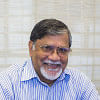

 For all latest news, follow The Daily Star's Google News channel.
For all latest news, follow The Daily Star's Google News channel. 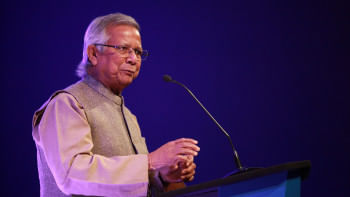





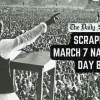
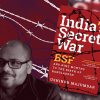
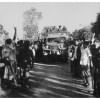

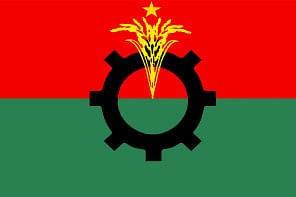
Comments